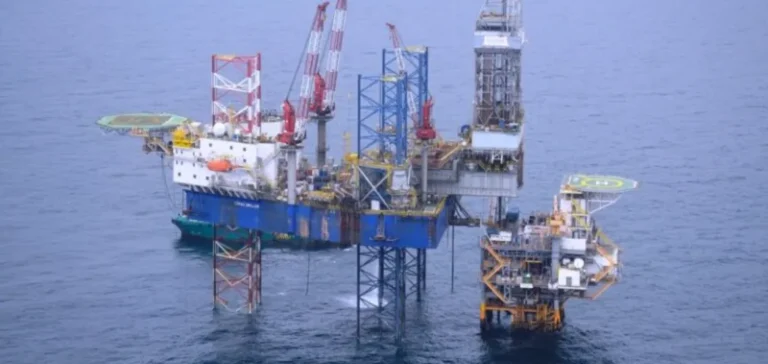Reconnaissance Energy Africa Ltd. has signed a production sharing contract with the Republic of Gabon and Gabon Oil Company for offshore block C-7, now renamed Ngulu. The contract also includes Canadian company Record Resources Inc., and defines an interest split in which ReconAfrica will hold 55%, Record 20%, Gabon Oil Company 15% and the Gabonese state 10%, the latter being carried.
The Ngulu block, covering 1,214 km², is located in shallow waters off central Gabon. It includes an existing oil discovery, the Loba field, drilled in 1976, with a 140-metre gross oil column, including 70 metres of net pay. This field offers short-term production opportunities, with an estimated 20,000 barrels per day, supported by existing infrastructure located approximately 10 kilometres away.
Diversified portfolio and anticipated production
The project will allow ReconAfrica to diversify its portfolio with assets combining appraisal, development and exploration. The initial four-year contract period includes detailed geological and geophysical studies, reprocessing of existing 3D seismic data, and the drilling of one well. The entry cost is described as moderate, with a limited work programme over the initial term.
Ngulu lies close to several sizeable producing fields ranging from 38 to 250 million barrels. Twenty-eight prospects analogous to Gulf of Mexico play types have been identified, reinforcing the discovery potential of the area. ReconAfrica plans to apply advanced seismic reprocessing methods to refine mapping and reduce drilling risks.
Block structure and resources in place
Major prospects include Lepidote Deep, Pompano Dentex and the Palomite complex, all located within pre- and post-salt zones. Lepidote Deep, partially drilled in the 1970s, did not reach its deeper targets but showed significant signs of hydrocarbons. Modern depth migration technology is expected to improve seismic imaging quality and structural interpretation.
The Loba field and its identified extensions, Loba Deep and Loba East, represent a low-cost development opportunity. These structures are comparable to other producing fields in Gabon’s basin such as Grondin, Baudroie and Torpille, which historically produced between 20,000 and 42,000 barrels per day.
Regional outlook and expansion strategy
Gabon remains one of sub-Saharan Africa’s leading oil producers, with output above 220,000 barrels per day and proven reserves estimated at around 2 billion barrels. The sector includes several international operators, such as Perenco, TotalEnergies, BW Energy and Sinopec.
The Gabonese government has stated its aim of creating a regulatory framework attractive to investors, in order to fully exploit the country’s oil and gas resources. ReconAfrica indicated that this transaction is aligned with its strategy of becoming an integrated offshore exploration and production company in West Africa.






















